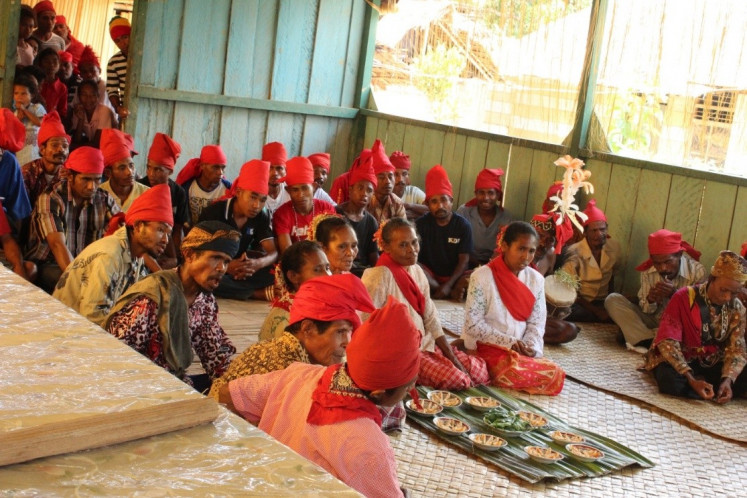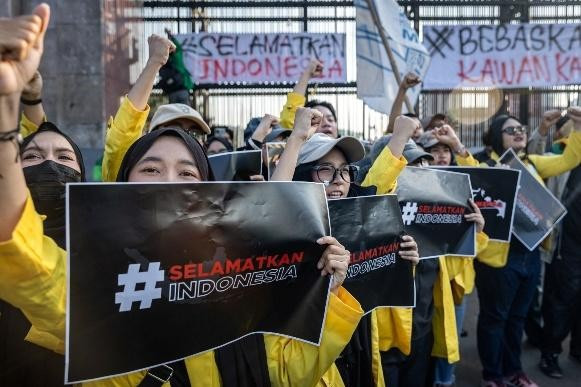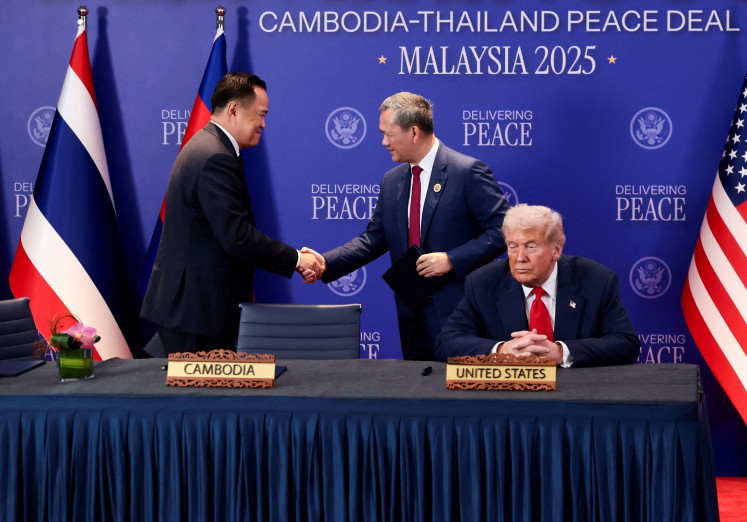Popular Reads
Top Results
Can't find what you're looking for?
View all search resultsPopular Reads
Top Results
Can't find what you're looking for?
View all search resultsCOVID-19 a wakeup call to do more in protecting children
Before the pandemic, the level of violence against children in Indonesia was relatively high, with 60 percent of children between the ages of 13 and 17 having experienced at least one form of violence.
Change text size
Gift Premium Articles
to Anyone
N
ational Children’s Day, which falls July 23, will not be celebrated like in years past on account of the COVID-19 pandemic. Indonesia’s commemoration of the day is themed “Anak Terlindungi, Indonesia Maju” (Children Protected, Indonesia Onward) this year.
The 1945 Constitution and Child Protection Law mandate that the government guarantees and protects children’s right to life, growth and participation in society in accordance with human dignity, and protect them from violence and discrimination.
The government’s decision to declare the pandemic a national disaster and calls for people to work, study and worship from home may be problematic for children.
Even though the risk of COVID-19 infection among children is lower than that in older age groups, the pandemic will seriously impact the lives of the country’s 80 million children.
UNICEF has called on countries across the world to recognize that children are “invisible victims”, given the short and long-term impacts of the pandemic on their health, well-being, development and future. These impacts can be classified as: child poverty, learning, nutrition, care and security.
Loss of household income can suddenly cause instability in a family and lead to poverty. Income and spending of poor and vulnerable families who have children will drop because of inadequate savings.
Before the COVID-19 pandemic, Indonesia was among countries with “three burdens of malnutrition”, with 7 million children stunted, the fifth-highest rate in the world.
COVID-19 is feared to exacerbate the situation. The most common direct causes of malnutrition are breast-feeding and inadequate parenting, as well as poor diet; inadequate nutrition and care for mothers and pregnant women; and high rates of communicable diseases mainly due to unclean living environments and lack of access to health services.
These factors are compounded by widespread poverty, unemployment and a low level of education. Families and children who fall into poverty will immediately face food insecurity.
In terms of learning, Indonesia has closed all schools, forcing 60 million students to study from home using government and private digital platforms. However, online learning still poses challenges, especially in remote areas, where internet access is lacking or absent. Besides, not all teachers and students possess laptops or gadgets.
Before the pandemic, the level of violence against children in Indonesia was relatively high, with 60 percent of children between the ages of 13 and 17 having experienced at least one form of violence, whether physical, psychological or sexual. Regional quarantines can exacerbate the existing risk factors related to violence, harassment and neglect in terms of care at home and in institutions. Not to mention, there is a risk of children being sexually exploited or trapped in pornography.
Looking at those problems, the central and regional governments, especially the new joint COVID-19 response team established by President Joko “Jokowi” Widodo, need to develop specific strategies to protect children.
First, ensure that children’s experiences and rights have a special place in the preparation of strategies, programs and activities to deal with COVID-19. Without a child rights-based approach, this is not possible.
Second, ensure that children are protected from violence. Specific strategies need to be developed to reduce the risk of gender-based violence against children, including upgrading the various services available, making and distributing referral guidelines, and expanding the scope of reporting and handling mechanisms.
The recent rape and sexual exploitation case at the Integrated Service Center for Empowerment of Women and Children (P2TP2A) in East Lampung regency is a dear lesson. A 14-year-old rape victim, who should have received healing at the center, experienced sexual violence there.
The police have named an official of the center, identified as DA, a suspect in the case, which has triggered public anger. The government has to improve child protection strategies, given that a safe house provided by the state cannot provide protection and shelter to children and victims of violence.
Third, the allocation of special funds for children. Budget reallocation and cuts to mitigate the impacts of COVID-19 on the economy is understandable but should not affect efforts to protect children’s rights gender equality.
If there is failure to fulfill the three requirements, it is simply impossible for Indonesia to protect its children.
***
The writer is founder of Institut Perempuan and independent adviser on legal matters, policy and human rights.










